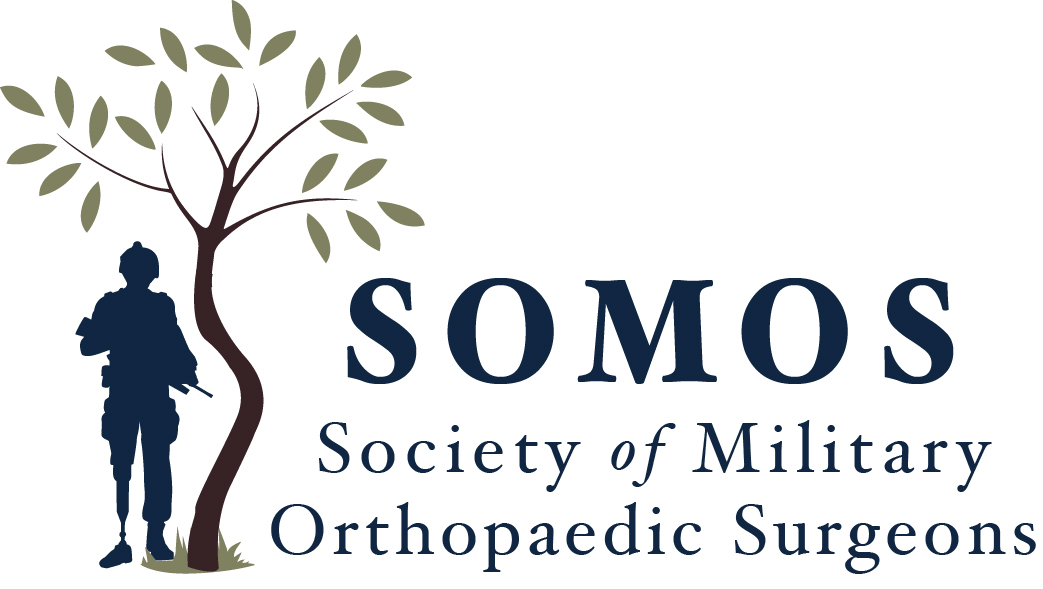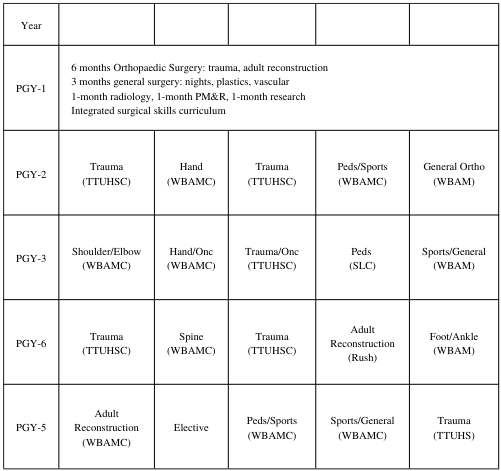- Home
- About
- Education
- Research
- Exhibiting
- Awards & Funds
- Residency Programs
- Brooke Army Medical Center/ San Antonio Military Medical Center
- Dwight D. Eisenhower Army Medical Center
- Madigan Army Medical Center
- Naval Medical Center Portsmouth
- Naval Medical Center San Diego
- Tripler Army Medical Center
- Walter Reed National Military Medical Center
- William Beaumont Army Medical Center
- Womack Army Medical Center
- MOTION
- Career Center
AcademicsClinical Rotations/Sample Matrix with explanation of in-house, local community rotations, and away rotations
Didactic Schedule including opportunity for labs/simulations: Wednesdays serve as protected academic time. The first half of the academic year is dedicated to preparation for the orthopaedic in-service training examination (OITE). The second half of the year is focused on the honing of surgical skills with exposure to a broad range of surgical techniques, approaches and implants. Lectures are resident and staff led, and matched with surgeon interest. Our anatomy curriculum is thorough, and over the course of 4 months we review all relevant approaches and musculoskeletal anatomy. It is not atypical for us to have 2 cadaver labs per month during the second half of the academic year. We also have a well-equipped simulation lab with arthroscopic simulators of the shoulder, hip and knee available. Journal Club Structure:Journal club is monthly or bi-monthly, with rotating topics decided by a PGY-5. Clinical Sites:William Beaumont Army Medical Center, El Paso, TX Call Requirements:Call begins during the PGY-1 year, with the intern working with the PGY-2 to respond to pages and consults at both WBAMC and TTUHSC. Interns are never assigned independent call. Interns do take occasional weekend call at TTUHSC which affords early exposure to orthopaedic consult management and time in the operating room. PGY-2 and PGY-3 residents take independent call at both WBAMC and TTUHSC. We utilize a night float system for TTUHSC and home call for WBAMC. Senior backup is always available via phone call. PGY-4 and PGY-5 residents take senior call, during which they provide immediate telephone or in-person backup to the junior resident, and are expect to manage all aspects of operative cases to include implant selection, positioning, plan and, through graduated responsibility, plan execution. We strongly adhere to the ACGME work-hours and call requirements. Mentorship Program Opportunity for Meeting Attendance Does the program provide Loupes/Lead? Does the program provide any textbook funding? |





